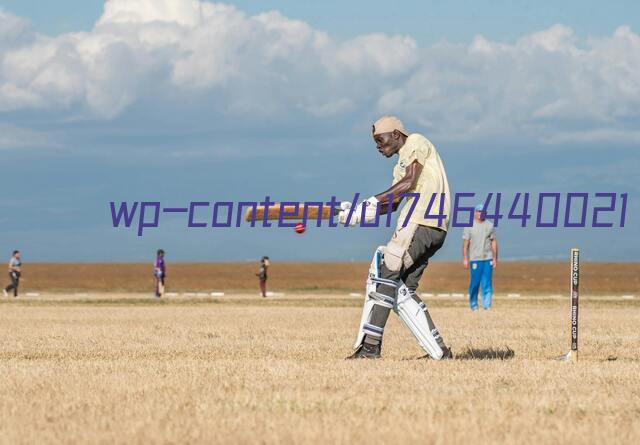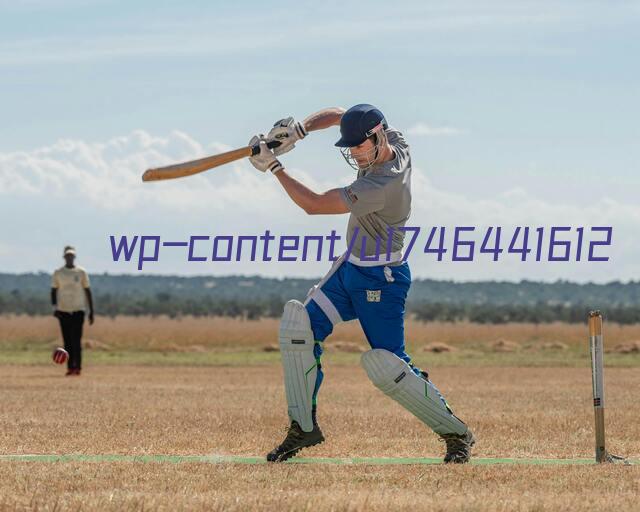
INTRODUCTION
1.1 The Lokpal Bill, 2011 was introduced* in the Lok Sabha on 4th August, 2011. It was referred§§ by the Hon'ble Chairman, Rajya Sabha to the Department-Related Parliamentary Standing Committee on Personnel, Public Grievances, Law and Justice on the 8th August, 2011 for examination and report.
1.2 The Bill (Annexure-A) seeks to provide for the establishment of the institution of Lokpal to inquire into allegations of corruption against certain public functionaries and for matters connected therewith or incidental thereon.
1.3. The Statement of Objects and Reasons, appended to the Bill reads as under:- "The need to have a strong and effective institution of Lokpal has been felt for quite sometime. The Administrative Reforms Commission , in its interim report on the 'problems of Redressal of Citizens' Grievances submitted in 1966, inter alia recommended the setting up of an institution of Lokpal at the Centre in this regard.
To give effect to this recommendation of the Administrative Reforms Commission, eight Bills on Lokpal were introduced in the Lok Sabha in the past, namely in the years 1968, 1971, 1977, 1985, 1989, 1996, 1998 and 2001. However, these Bills had lapsed consequent upon the dissolution of the respective Lok Sabha except in the case of 1985 Bill which was withdrawn after its introduction.
A need has been felt to constitute a mechanism for dealing with complaints on corruption against public functionaries in high places. In this regard, the Central Government constituted a Joint Drafting Committee (JDC) on 8th April, 2011 to draft a Lokpal Bill.
Based on the deliberation and having regard to the need for establishing a strong and effective institution of Lokpal to inqjuire into allegation of corruption against certain public functionaries, it has been decided to enact a stand alone legislation, inter alia to provide for the following matters, namely :-
(i) to establish an Institution of Lokpal with a Chairperson and eight Members of which fifty per cent shall be Judicial Members;
(ii) to set up Lokpal's own Investigation Wing and Prosecution Wing with such officers and employees a felt by it to be necessary;
(iii) the category of public functionaries against whom allegation of corruption are to be inquired into, namely :-
a. a Prime Minister, after he has demitted office;
b. a Minister of the Union;
c. a Member of Parliament;
* Published in Gazette of India (Extraordinary) Part-II Section 2 dated 4th August,, 2011.
Rajya Sabha Parliamentary Bulletin Part-II (No.1937) dated 9th August, 2011.
1
d. any Group "A" officer or equivalent;
e. a Chairperson or member or officer equivalent to Group "A" in any body, Board, corporation, authority, company, society, trust, autonomous body established by an Act of Parliament or wholly or partly financed or controlled by the Central Government;
f. any director, manager, secretary or other officer of a society or association of persons or trust wholly or partly financed or aided by the Government or in receipt of any donations from the public and whose annual income exceeds such amount as the Central Government may be notification specify but the organizations created for religious purposes and receiving public donations would be outside the purview of the Lokpal.
(iv) To provide for a mechanism to ensure that no sanction or approval under section 197 of the Code of Criminal Procedure, 1973 or section 19 of the Prevention of Corruption Act, 1988, will be required in cases here prosecution is proposed by the Lokpal.
(v) to confer on the Lokpal the power of search and seizures and certain powers of a Civil Court;
(vi) To empower the Lokpal or any investigation officer authorized by it in this behalf to attach property which, prima facie, has been acquired by corrupt means;
(vii) To lay down a period of limitation of seven years from the date of commission of alleged offence for filing the complaints before the Lokpal;
(viii) To confer powers of police upon Lokpal which the police officers have in connection with investigation;
(ix) To charge the expenses of Lokpal on the Consolidated Fund of India;
(x) to utilize services of officers of Central or State Government with the consent of the State Government for the purpose of conducting inquiry;
(xi) To recommend transfer or suspension of public servants connected with allegation of corruption;
(xii) To constitute sufficient number of Special Courts as may be recommended by the Lokpal to hear and decide the cases arising out of the Prevention of Corruption Act, 1988 under the proposed enactment;
(xiii) To make every public servant to declare his assets and liabilities, and in case of default or furnishing misleading information, to presume that the public servant has acquired such assets by corrupt means;
(xiv) To provide for prosecution of persons who make false or frivolous or vexatious complaints.
The notes on clauses explain in detail the various provisions contained in the Bill. The Bill seeks to achieve the above objects."
1.4. In slight deviation from the normal procedure followed by Standing Committees for examination of Bills, there was a detailed discussion on the statement of the Minister of Finance on the issues relating to the setting up of the Lokpal in both the Houses of Parliament on the 27th August, 2011. These proceedings were also transmitted to the Committee. The Rajya Sabha Secretariat communication dated the 30th August, 2011 in this behalf addressed to the Chairman, Standing Committee, reads as follows:-
"I am directed to inform you that the Chairman, Rajya Sabha, has desired that the proceedings of the Rajya Sabha and Lok Sabha dated the 27th August, 2011 pertaining to the discussion on the statement made by the Minister of Finance on issues relating to setting up of Lok Pal may be transmitted to the Department-related Parliamentary Standing Committee on Personnel, Public Grievances, Law & Justice for its perusal while formulating its recommendations on the Lok Pal Bill,. 2011. Accordingly, a copy each of the relevant proceedings of the Rajya Sabha and Lok Sabha is enclosed for your kind perusal."
1.5. The discussion in the two Houses of Parliament was in the backdrop of divergent views in the Joint Drafting Committee constituted by the Government for preparing a draft on the Lokpal Bill. The Committee consisted of five nominees of the Civil Society (led by Shri Anna Hazare) and five nominees of the Government. Initiating discussion in both the Houses, Hon'ble Finance Minister gave a background of the matter leading to holding of discussion in Parliament on the setting up of Lokpal. He enumerated the following six major areas of divergent views in the Joint Drafting Committee:-
i. Should one single Act be provided for both the Lokpal in the Centre and Lokayukt in the State? Would the State Governments be willing to accept a draft provision for the Lokayukt on the same lines as that of the Lokpal?
ii. Should the Prime Minister be brought within the purview of the Lokpal? If the answer is in affirmative, should there be a qualified inclusion?
iii. Should Judges of the Supreme Court and High Courts be brought within the purview of the Lokpal?
iv. Should the conduct of Members of Parliament inside Parliament, their right to speak and right to vote in the House, be brought within the purview of the Lokpal? Presently such actions of the Members of Parliament are covered by article 105(2) of the Constitution?
v. Whether Articles 311 and 320 (3) (c) of the Constitution notwithstanding members of a civil service of the Union or an All India Service or a Civil Service of a State or a person holding a civil post under the Union or State, be subject to enquiry and disciplinary action including dismissal and removal by the Lokpal and Lokayukta, as the case may be?
vi. What should be the definition of the Lokpal, and should it itself exercise quasijudicial powers also or delegate these powers to its subordinate officers?"
1.6. Apart from other issues, the following three issues were discussed in both the Houses:-
i. Whether the jurisdiction of the Lokpal should cover all employees of the Central Government?
ii. Whether it will be applicable through the institution of the Lokayukt in all States?
iii. Whether the Lokpal should have the power to punish all those who violate the 'grievance redressal mechanism' to be put in place?
1.7. During the discussion in Parliament, Members demonstrated serious commitment to evolve an effective mechanism to deal with the menace of corruption. The discussion covered several related issues as well, besides the three specific issues referred to above. Members discussed the need to bring all classes of bureaucracy within the fold of the Lokpal while expressing apprehensions about the overburdening of the institution. Similarly, Members were concerned about preservation of the federal spirit of our Constitution. The issue of bringing the grievance redressal mechanism under the Lokpal or having a separate law for this purpose was also discussed.
(A gist of the debate in both the Houses is placed as Annexure B).
1.8. In his reply to the debate, the Minister of Finance concluded in both the Houses in these words:-
" This House agrees in principle on the Citizens Charter, Lower Bureaucracy to be brought under Lokpal through appropriate mechanism and Establishment of Lok Ayuktas in the States. I will request you to transmit the proceedings to the Department-related Standing Committee for its perusal while formulating its recommendations for a Lokpal Bill."
1.9. The deliberations in the two Houses of Parliament gave guidance to the Committee in the accomplishment of the task assigned to it. The Committee, however, also had before it vast inputs on the subject from various sources. Recommending an appropriate legislative architecture for the purpose was a complex task for the Committee as it was to propose a solution which harmonized and married the concerns of constitutional validity, operational efficacy and consensus amongst the diverse views reflected in the Committee's deliberations. The Members of the Committee, however, have put in their best possible efforts to deal with the essence of the opinions expressed by the House collectively. The diverse pool of knowledge of the Members, opinions of eminent experts and the suggestions received from a comprehensive and diverse cross-section of society helped the Committee to formulate solutions taking into account the aspects of functional feasibility and constitutional validity in addition to political consensus.
1.10. In order to have a broader view on the Bill, the Committee decided to invite views/suggestions on the issue from desirous individuals/organizations. Accordingly, a press release was issued inviting views/suggestions. In response to the press release published in major English and Hindi dailies all over India on the 20th August, 2011,
a number of representations/ memoranda were received. The Committee received approximately 10,000 responses from different sections of society.
1.11. The Committee also forwarded 216 select memoranda from out of the ones received from the individuals/organizations to the Department of Personnel and Training for their comments thereon. A list of such memoranda along with the gist of views/ suggestions contained therein and the comments of the Department of Personnel and Training thereon is placed at Annexure- C.
SCR Lokpal Bill 2011.pdf (pdf 1171K ) Download



